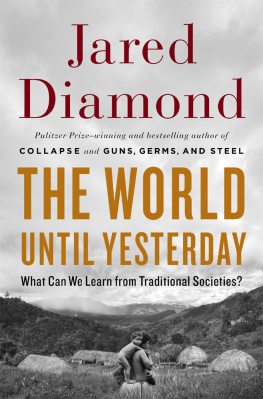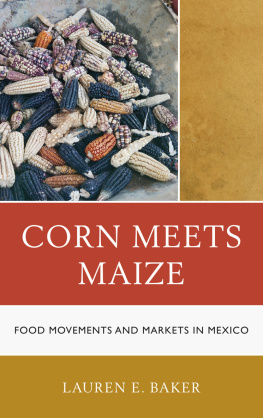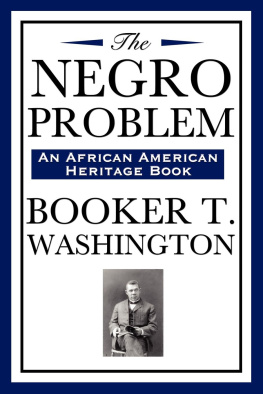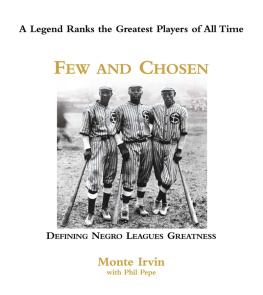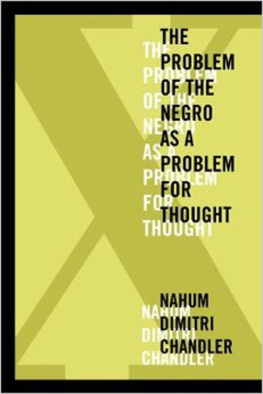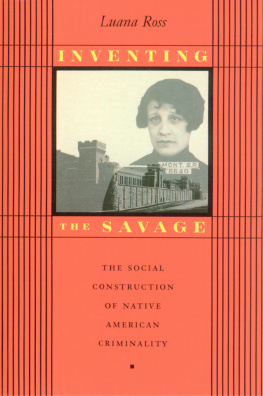Baker - From savage to negro: anthropology and the construction of race, 1896-1954
Here you can read online Baker - From savage to negro: anthropology and the construction of race, 1896-1954 full text of the book (entire story) in english for free. Download pdf and epub, get meaning, cover and reviews about this ebook. City: Berkeley;Calif;USA, year: 2007;1998, publisher: University of California Press, genre: Politics. Description of the work, (preface) as well as reviews are available. Best literature library LitArk.com created for fans of good reading and offers a wide selection of genres:
Romance novel
Science fiction
Adventure
Detective
Science
History
Home and family
Prose
Art
Politics
Computer
Non-fiction
Religion
Business
Children
Humor
Choose a favorite category and find really read worthwhile books. Enjoy immersion in the world of imagination, feel the emotions of the characters or learn something new for yourself, make an fascinating discovery.

From savage to negro: anthropology and the construction of race, 1896-1954: summary, description and annotation
We offer to read an annotation, description, summary or preface (depends on what the author of the book "From savage to negro: anthropology and the construction of race, 1896-1954" wrote himself). If you haven't found the necessary information about the book — write in the comments, we will try to find it.
From savage to negro: anthropology and the construction of race, 1896-1954 — read online for free the complete book (whole text) full work
Below is the text of the book, divided by pages. System saving the place of the last page read, allows you to conveniently read the book "From savage to negro: anthropology and the construction of race, 1896-1954" online for free, without having to search again every time where you left off. Put a bookmark, and you can go to the page where you finished reading at any time.
Font size:
Interval:
Bookmark:
From Savage to Negro
Anthropology and the
Construction of Race, 18961954
Lee D. Baker

University of California Press
Berkeley and Los Angeles, California
University of California Press, Ltd.
London, England
1998 by
The Regents of the University of California
Library of Congress Cataloging-in-Publication Data
Baker, Lee D., 1966
From savage to Negro : anthropology and the construction of race, 18961954 / Lee D. Baker.
p. cm.
Includes bibliographical references and index.
ISBN 0-520-21168-5 (pbk. : alk. paper)
1. Racism in anthropologyUnited StatesHistory. 2. AnthropologyUnited StatesHistory. 3. Racism in popular cultureUnited StatesHistory. 4. Afro-AmericansPublic opinion. 5. Public opinionUnited States. 6. United StatesRace relations.
I. Title.
GN17.3.U6B35 1998
305.8dc21 97-31602
Printed in the United States of America
10 09 08 07 06 05 04 03 02
12 11 10 9 8 7 6 5 4 3
The paper used in this publication meets the minimum requirements of ANSI/NISO Z39.48-1992 (R 1997) (Permanence of Paper). 
I dedicate this book to Thurgood Marshall, Ida B. Wells-Barnett, W. E. B. Du Bois, and the countless others who possessed the audacity to believe in democracy and the courage to fight for justice.
Chapter 1
History and Theory of a Racialized Worldview
Chapter 2
The Ascension of Anthropology as Social Darwinism
Chapter 3
Anthropology in American Popular Culture
Chapter 4
Progressive-Era Reform: Holding on to Hierarchy
Chapter 5
Rethinking Race at the Turn of the Century:
W. E. B. Du Bois and Franz Boas
Chapter 6
The New Negro and Cultural Politics of Race
Chapter 7
Looking behind the Veil with the Spy Glass
of Anthropology
Chapter 8
Unraveling the Boasian Discourse
Chapter 9
Anthropology and the Fourteenth Amendment
Chapter 10
The Color-Blind Bind
Acknowledgments
I received tremendous support for this project, both material and intellectual. I began my initial research for it as a fellow at the W. E. B. Du Bois Institute for Afro-American Research at Harvard University. I would like to acknowledge Randall K. Burkett, Karen C. C. Dalton, Henry Lewis Gates, Jr., Elizabeth Guzmn, Richard Powell, and Manisha Sinha, as well as all of my fellow fellows. Everyone gave me great support, direction, and ideas. The following year I received a fellowship to continue my research and writing at the National Museum of American History, Smithsonian Institution. I had the tremendous opportunity to engage many people who supported my efforts, including Mary Dyer, Carolyn Goldstein, Johnathan Holloway, Tera W. Hunter, Charles McGovern, Niani Kilkenny, Doug Rossinow, Fath Ruffins, Marvette Perez, Peggy Schaffer, and Stephanie Thomas. During the ensuing year I was fortunate enough to completely rework the manuscript as a Mellon Scholar at the Institute for Global Studies in Culture, Power, and History at the Johns Hopkins University. I would like to acknowledge the support of Herman Bennett, Shelly Eversley, Sidney Mintz, Jennifer L. Morgan, Odeana R. Neal, Robert F. Reid-Pharr, Michel-Rolph Trouillot, Dorothy Ross, and Brackette F. Williams. Additional financial support came from Temple University and the Duke University Arts and Sciences Council. Other people, including anonymous reviewers, Jenifer Alvey, Ananth Ayer, Janaki Bakhle, Michael Blakey, Karen Brodkin, Valerie Cassel, Nahum D. Chandler, Kenneth B. Clark, H. Alexis Economou, Thelma Foote, Christine Ward Gailey, Alan H. Goodman, Richard Handler, Robin D. G. Kelley, Sylvia Lim, William Murphy, Sarah K. Myers, Jack Nelson, Don Nonini, Peter Rigby, Robert Rydell, Audrey Smedley, Arthur Spears, Terrance R. Taylor, Nancy H. Tolin, Mark V. Tushnet, Kathy Walker, and Howard Winant, helped me in both broad and specific ways. I also want to acknowledge those who have contributed to my early foundations in both African American Studies and Anthropology: William A. Little, Thomas Patterson, and the late Daniel Scheans. Finally, I owe a debt of gratitude to the patience and perseverance of both Layli D. Phillips and Faye V. Harrison, who demonstrated overwhelming support for me and this project. Finally, thanks to Tracy Hammond, Bayo Holsey, Martha S. Jones, John L. Jackson, Jr., Erica Turnipseed, and my lovely wife, Sabrina L. Thomas.
Race in the United States is at once an utter illusion and a material reality, a fiction and a scientific fact. It is a political wedge and a unifying force. It is structured by legislation yet destabilized by judicial fiat, shaped by public opinion but also configured by academic consensus. Though historically contingent, it is constantly being transformed. The history and reality of race and racism in the United States force individuals to negotiate daily between the ideological pillars of democracyjustice, freedom, and equalityand stark racial inequality. Whether one looks to Alexis de Tocqueville or Studs Terkel, this negotiation is recognized as a fundamental character of U.S. societywhat Terkel calls the American obsession.
In the United States, people use commonsense racial categories every day to identify strangers and social situations or to help form their own identities. Racial categories are often seen as natural or as having some inherent biological component. But some have understood for decades that categories of race in the United States have little to do with natural history and a great deal to do with social and political history.
Although they often seem immutable, racial categories are always in flux; indeed, sometimes they change rapidly. Racial categories are produced and reproduced ideologically and culturally: they are constructed. In turn, these categories structure the access of specific groups to opportunities and resources. Complex political, economic, and cultural processes on a global scale produce various racial constructs that vary during particular periods in history from solid and generally accepted to tenuous and vigorously contested. The dynamics of this variation will become clearer as this narrative unfolds.
Since the founding of the Union, contests over what racial groups in the United States signify have been political enterprises. Though dating to the colonial period, the politics of race was woven into the Constitution and continues to dominate American culture and politics. As with most political endeavors in the United States, various individuals, groups, and coalitions simultaneously wield power, marshal authority, and sway public opinion. The construction of race is no different. No political party, interest group, or scientific organization has itself structured racial inequality. Although various interests worked in concert, the structuring of racial inequality was not orchestrated. Yet ideas about race are articulated in ways that reinforce legal, social, and economic relations among groups.
Historically, there has been a certain resonance between laws regarding race passed by Congress and upheld by the Supreme Court, ideas about race articulated in the mass media, and studies on race published by scientists. These institutions share specific notions about race that converge, are sometimes linked, and often influence one another. Researching, theorizing, and classifying racial groups has always been the province of anthropology.
In this book I explore the relationships and linkages between the shifting discourse on race within anthropology and the racial constructs undergoing transformation in the United States. One of my goals is to explore how anthropologists and the texts they produce contribute to the various dynamics involved in the formation of the racial category used for African Americans. I focus on the first half of the twentieth century because ideas about racial inferiority were supplanted by notions of racial equality in law, science, and public opinion; each arena played off and reinforced the other. Anthropology also matured as a discipline during these years and was affected by these changes, yet it helped to effect them. Simply put, I integrate the history of anthropology and the history of the African American experience, and by doing so I reveal intersections and linkages that have not been considered previously.
Next pageFont size:
Interval:
Bookmark:
Similar books «From savage to negro: anthropology and the construction of race, 1896-1954»
Look at similar books to From savage to negro: anthropology and the construction of race, 1896-1954. We have selected literature similar in name and meaning in the hope of providing readers with more options to find new, interesting, not yet read works.
Discussion, reviews of the book From savage to negro: anthropology and the construction of race, 1896-1954 and just readers' own opinions. Leave your comments, write what you think about the work, its meaning or the main characters. Specify what exactly you liked and what you didn't like, and why you think so.

